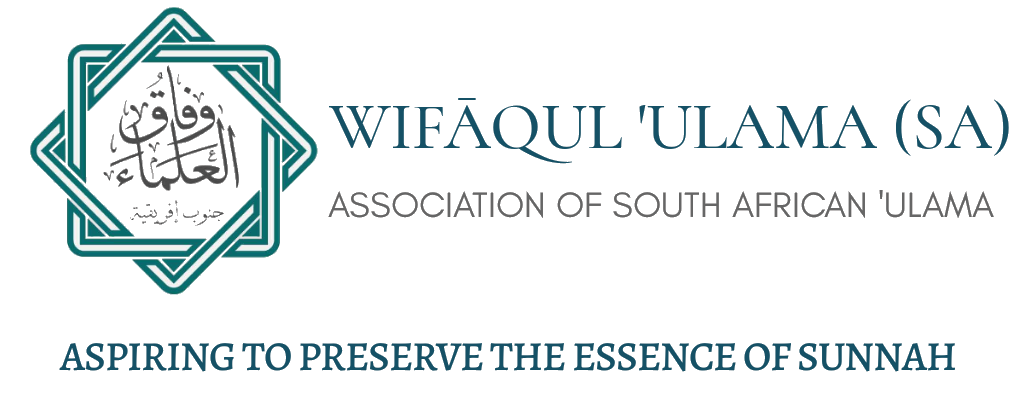
Hazrat Sheikhul Hadith Moulana Muhammad Zakariyya Kandhelwi (rahimahullah) – Part C
Joining Family Ties
The sunnah of joining family ties is an extremely emphasized sunnah in Islam. In one Hadith, Hazrat Rasulullah (sallallahu ‘alaihi wasallam) mentioned, “The one who severs family ties will not enter Jannah.” (Saheeh Bukhaari #5984). In another Hadith, it is mentioned that on one occasion, Hazrat Uqbah (radhiyallahu ‘anhu) asked Rasulullah (sallallahu ‘alaihi wasallam), “O Rasul of Allah (sallallahu ‘alaihi wasallam)! Which actions are the most virtuous?” Rasulullah (sallallahu ‘alaihi wasallam) replied, “O Uqbah! Join family ties with those who sever ties with you, give to those who deprive you, and turn away from those who oppress you.” (Majma’uz Zawaa’id 13689)[1]
Hazrat Sheikhul Hadith, Moulana Muhammad Zakariyya Kandhelwi (rahimahullah) understood the great importance of joining family ties. Hence, he made a special point of going to visit family members, and would even visit those who were displeased with him in order to try and join ties and maintain the relationship with them. Below is a profound incident mentioned by Hazrat Sheikh (rahimahullah) himself, explaining the lengths to which he went in joining family ties. Hazrat Sheikh (rahimahullah) mentions:
It has always been my habit and the habit of my respected uncle (Hazrat Moulana Muhammad Ilyaas Kandhelwi [rahimahullah]), that when we could come to spend a night in Kandhlah, then we would make it a point to go and meet all our relatives. We would ensure that we went to the home of each family member and visited them for a few minutes. Generally, I would visit Kandhlah every six to eight months and would spend one night there (before returning to Sahaaranpur).
On one occasion, I went to Kandhlah after eight months. As per my usual habit, I visited all the homes of my relatives in Kandhlah. At that time, my friend, Master Mahmood-ul-Hasan, who has passed away, was present in Kandhlah. He was reluctant to join me in visiting my relatives, but out of consideration for me, he decided to accompany me.
While going from home to home, we came to the home of a certain relative who was upset with me over some trivial issue that was based on a misunderstanding. At that time, I was not even aware that he was upset with me. On coming to his home, I greeted him with salaam, but he turned his face away from me and did not reply. I then extended my hands to make musaafahah with him, but he pulled his hands away from me and did not wish to shake my hands. Observing the conduct of my relative, my friend, Mahmood-ul-Hasan, became so upset that his face had become red with anger. Nevertheless, I sat close to my relative for a few moments and thereafter departed.
While we were returning from the home of that relative, Mahmood-ul-Hasan asked me, “When this person has no respect and no shame, then why do you still go to visit him?” I responded, “Despite whatever conduct he shows me, I will ensure that I visit him. He conducted himself how he wished to do so, and I will conduct myself as I am supposed to. It is the teaching of the Hadith Shareef that we should join ties with those who sever ties with us (hence, because of this command of deen, I will continue to visit him and try to join ties with him).”
Hazrat Sheikh (rahimahullah) continues:
It was the favour and kindness of Allah Ta‘ala that this person, who was initially upset with me, later on developed such a strong relationship with me that despite him being older than me, he came to me and insisted saying, “I will only take bay’at at your hands, and I will remain with you until the end of my life.” His love for me thereafter reached very great heights.
(Hazrat Sheikh ka Ittibaa-e-Sunnat pg. 63-64)
Source:Ihyaauddeen
[1] عن عقبة بن عامر قال: «ثم لقيت رسول الله – صلى الله عليه وسلم – فأخذت بيده فقلت: يا رسول الله، أخبرني بفواضل الأعمال. فقال: ” يا عقبة، صل من قطعك، وأعط من حرمك، وأعرض عمن ظلمك» 13690 – وفي رواية: ” «واعف عمن ظلمك» “. رواه أحمد والطبراني، وأحد إسنادي أحمد رجاله ثقات
 Wifāq ul Ulāma (SA) ASSOCIATION OF SOUTH AFRICAN 'ULAMA
Wifāq ul Ulāma (SA) ASSOCIATION OF SOUTH AFRICAN 'ULAMA
